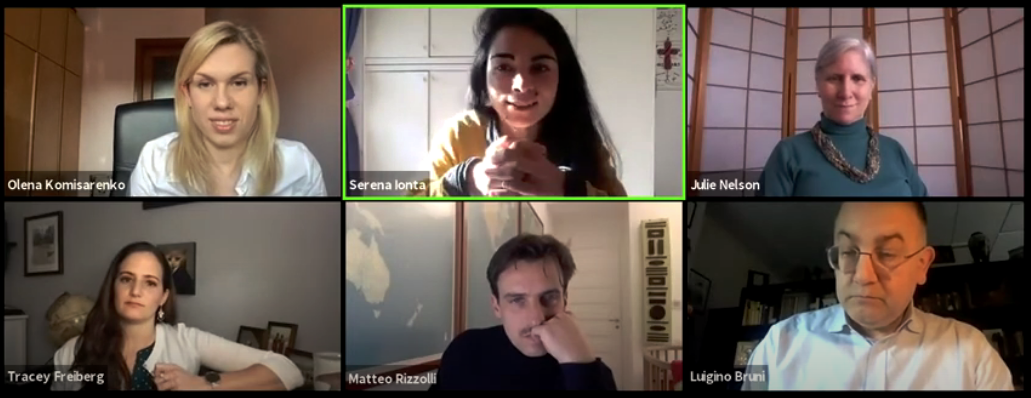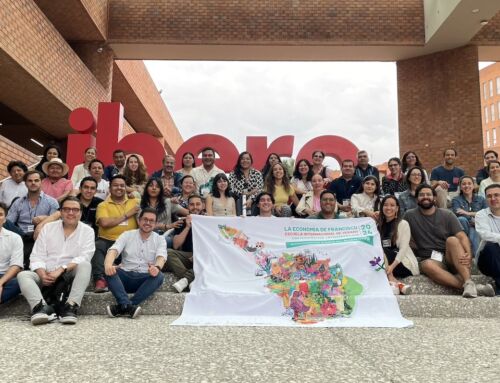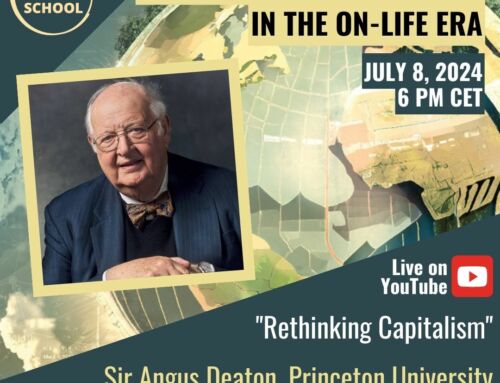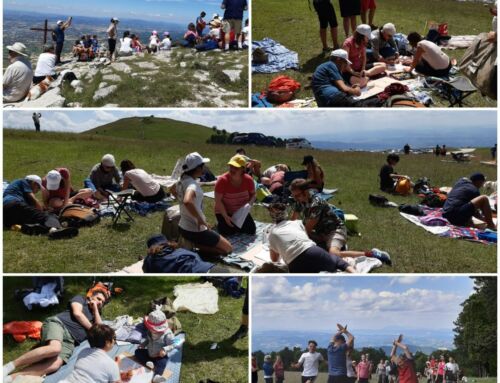FOR LOVE OR FOR MONEY, OR BOTH?
Julie Nelson at The Economy of Francesco School
by EOF STAFF
By a strange coincidence, some time ago two Nobel laureates in Economics became interested in the parable of the Good Samaritan. James M. Buchanan, Nobel Laureate in 1986, developed the famous Samaritan’s dilemma, according to which an act of charity leads to two possible reactions in the beneficiary: 1) a commitment to improve their condition; 2) a disincentive to commit because there are always those who are ready to help. Amartya Sen, Nobel Prize winner in 1998, drew a very different lesson from this: it is not the social affiliation or the motivation of the Samaritan that creates the closeness (neighbourhood) between the aggrieved person and the Samaritan.
The person who is close to me is not always my neighbour.
It is the need of the Israelite and the recognition of need by the Samaritan that creates a state of affairs that, according to Sen, allows for proximity.
In Fratelli Tutti, Pope Francis invited us to assume the characters in the parable, all the characters. We want to do this with the protagonist and perhaps the most neglected character in the story: the Samaritan and the innkeeper. After a night spent caring for the Israelite, the Samaritan pays the innkeeper two coins to take care of the Israelite, and promises to pay, on his return from his journey, any additional expenses. The economist Luigino Bruni has translated this episode into the language of game theory, hypothesising a Trust Game between the Samaritan and the inn keeper, imagining the possible endings of the economic transaction – the real one the parable does not reveal to us. What interests us, however, is that which is unspoken in the exchange, the veiled but essential questions: by paying another instead of continuing to assist the Israelite himself, did the Samaritan spoil the beautiful gesture to which compassion had led him? In general, can an authentic and genuine caring relationship be mediated by the market?
If we want to summarise in a few lines a significant part of the scientific contribution of Julie Nelson, feminist economist and emeritus professor of Economics at Boston University, we can say that this lies precisely in the attempt to answer the questions around: Samaritan-carer, money-care, care-market relationship.
Nelson is keen to make it clear that these are not questions for specialists or scholars: ‘Do the leaders, nurses, etc really care, in an emotive sense, or are they merely feigning concern about the wellbeing of those in their charge in order to receive some kind of reward? Anyone who has considered putting a young child into day care or a parent into a nursing home understands the salience of this question” (Nelson 2005, Interpersonal Relations and Economics: comments from a feminist perspective, p. 258).
Julie Nelson’s answer is straightforward: one can do these things for love, for money, or for both at the same time.
Nelson knows that part of the authenticity of caring lies in the loving spirit in which it is done, but the feminist activist is keen to stress that love must be free, that is, it must not hide situations of exploitation and power whereby women are ‘forced’ to care in the home. Again, feminist economist Nelson knows that homo oeconomicus does not really describe the characters of the market, first because he is a man, second because in the market, especially in the care market, one can pursue one’s own interests and sincerely care about the good of the other party. The slogans ‘pay less to get more’ or ‘because a poorly paid nurse is a good nurse’ hide the idea that little money would lead to a self-selection of the ‘most sincere’. Nelson disagrees. One can want to earn money for other purposes, such as supporting one’s family, and at the same time offer genuine care services. Nelson teaches us the rejection of dichotomous logic, either/ or. We should not be afraid to bring more market into care, as long as we are able to bring more care into the market.
On March 24th the Economy of Francesco met Julie Nelson in her School. The dialogue on these issues was enriched by the presence of three young interlocutors: Serena, from the CO2 village of Inequalities; Olena, from the Women for Economy village; and Tracey, from the Work and Care village. The names of the villages speak even before the protagonists of the dialogue. For the Economy of Francesco, care is a serious matter, and it is urgent that we begin to discuss it without rhetoric and reductionism.

















